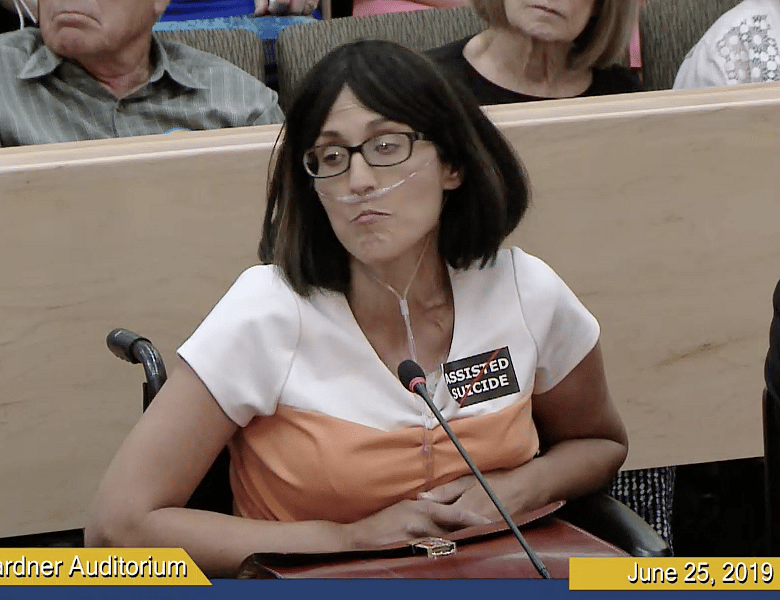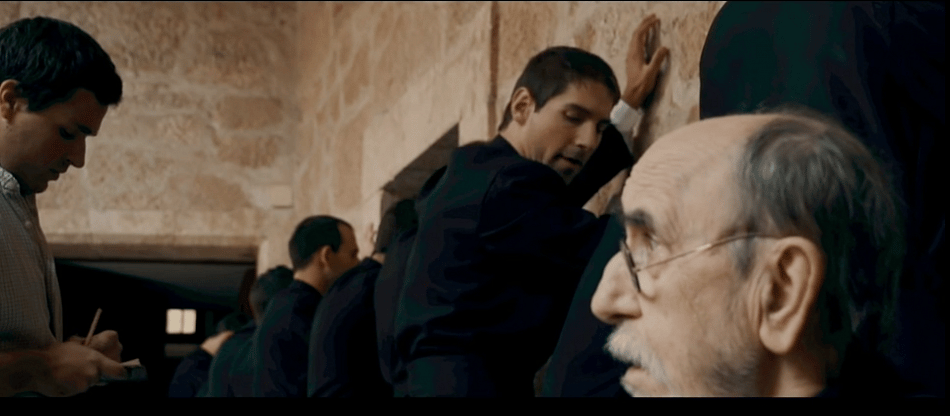Terminally Ill Mother of Four Says Health Insurance Company Told Her She Could End Her Life for $1.20

Editor's Note: Stephanie Packer, a mother of four in her mid-30s who lives in California, testified Tuesday, June 25, 2019 while sitting in a wheelchair with an oxygen tube in her nostrils before the Massachusetts Legislature's Joint Committee on Public Health about a proposed bill that would legalize physician-assisted suicide in Massachusetts (Senate Bill 1208).
Packer campaigned against a physician-assisted suicide law in California that was enacted in June 2016. Soon after the law took effect, she ran into a problem with her health insurance company, according to an October 2016 column in The New York Post. A new treatment recommended by her doctor was initially denied coverage, although eventually approved.

